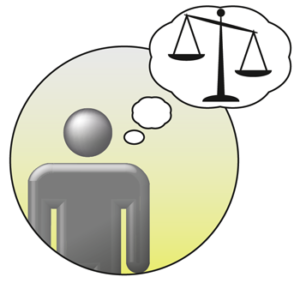A clinical trial can be a very good option for treatment if you are suffering cancer. The most obvious reason for considering a clinical trial is obviously to find a treatment that will be best for you. Many patients join a trial hoping that the treatment they can get on a trial is better than the standard that is currently available. However it’s important to remember that you may or may not benefit personally from being part of a trial. You may not get the “new” treatment, or it may not work for you, or you may not tolerate whichever treatment you are assigned.
 You can expect some things if you choose to take part in a clinical trial. Being treated on a clinical trial is likely to result in close observation and care from a highly skilled and specialized team. Your care taking the standard treatment on a clinical trial may indeed be better than in routine clinical practice. In addition, you will experience a great deal of personal satisfaction from having contributed to the body of human knowledge, of being one of the people that helps test new ideas for the treatment of cancer. Clinical trials are essential to find out more about diseases and how to treat them. So if you do take part in a trial, any information collected during the trial will inform decisions about the best way to treat future patients.
You can expect some things if you choose to take part in a clinical trial. Being treated on a clinical trial is likely to result in close observation and care from a highly skilled and specialized team. Your care taking the standard treatment on a clinical trial may indeed be better than in routine clinical practice. In addition, you will experience a great deal of personal satisfaction from having contributed to the body of human knowledge, of being one of the people that helps test new ideas for the treatment of cancer. Clinical trials are essential to find out more about diseases and how to treat them. So if you do take part in a trial, any information collected during the trial will inform decisions about the best way to treat future patients.
The decision to take part in a trial should not be taken lightly. Some people find the added information and complexity of a clinical trial too confusing, frightening or confronting. Some people don’t like the idea of their treatment being “randomly” imposed (though again, this is a coin-toss between “good treatment” and “hopefully even better treatment”; not win or lose). Some people would rather that their doctor or family decide what treatment is best for them. If you are offered a clinical trial, you do not have to take it. Your treatment will not suffer, your doctors will not disapprove. It is entirely your choice whether to participate.
If you are thinking of joining a trial, you can ask for the following information to help you decide.
- An up-to-date assessment of your condition.
- Detailed information about the trial, including what treatment is being tested and what taking part could mean for you.
- What alternative treatments or trials are available.
Am I right for a clinical trial?
It is not always possible to join a trial, even if you want to. When researchers design clinical trials, they usually have a strict set of rules to help them choose who can take part. For example, If a patient’s tumours are too small, it can make it hard to tell if the treatment is working or not. If patients are too sick then it may not be possible to safely give the treatment for fear of side effects.
You might not be eligible to take part in the trial if:
- your general health is not good enough (you are too unwell)
- you have had previous treatment for your kidney cancer that could affect the results of the trial
- you have other diseases (e.g. diabetes mellitus or auto-immune diseases) which could make you more likely to have side effects or affect the results of the trial
- you have had another kind of cancer at some time in the past
During the “screening” period, the team will perform a number of tests to make sure you fit all the criteria for the trial. Sometimes, this testing can turn up new findings that mean you are no longer eligible for the trial.
If you are excluded from a trial, you should be told why by your doctor or one of the trial doctors.
Sometimes there are logistical reasons for you to be excluded from a trial (e.g. your country is not taking part). In rare cases, it might be possible for you to travel to a different country to take part. Your doctor should be able to help you explore this option.
